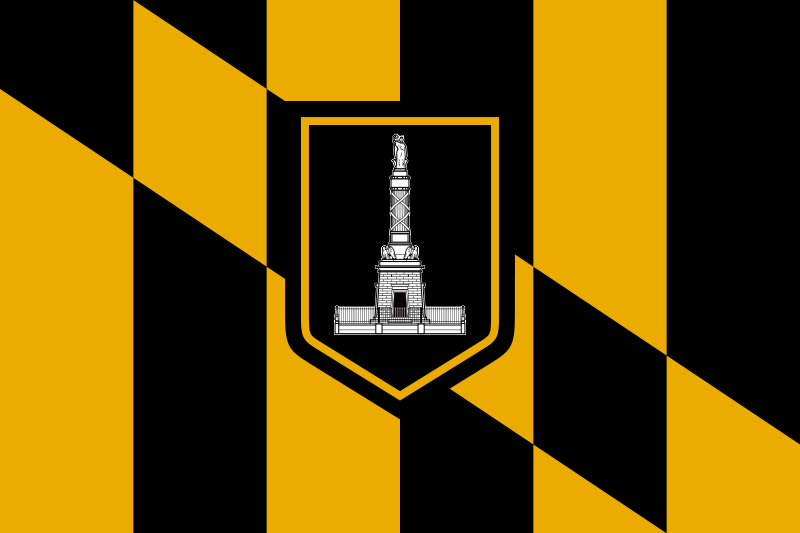June 1, 2011 at 11:13 am
· Filed under Career Resources, Events and Announcements, The Legal Industry and Economy
By: Steve Grumm
Our neighbors at the Pro Bono Institute are putting on a webinar that focuses on a timely question: as law firm business models evolve in the recession’s wake, how will pro bono programs be affected? This issue greatly interests me because I used to work at a pro bono clearinghouse in the World’s Most Glorious City. And here at NALP, many of our law-firm members focus on attorney professional development. The intersection

The Intersection of Pro Bono and Professional Development
between professional development and pro bono will likely be a very busy place in the coming years. Increasingly, firms wish to provide hands-on, practical training opportunities for junior associates. One obvious way to do this is through pro bono; by handling pro bono cases, even junior associates can develop case management/strategy skills, gain courtroom experience, and learn how to build trusting relationships with clients – all opportunities that may not be available to them immediately via fee-paying practice. So I look forward to focusing more on this issue in the coming months. And I’m looking forward to the PBI webinar next week. Here’s some detail about the webinar:
Coming up on June 7 at 12:30 p.m. EDT is the webinar, “The Evolving Law Firm Business Model and Its Impact on Pro Bono,” which will examine the changes faced by large law firms and the effect they will have on pro bono.
Large law firms are changing the way they do business, including major shifts in attorney headcount, recruitment, and compensation; new approaches to professional and skill development and advancement; and shifts in billing arrangements and relationships with corporate clients. More profound changes are likely to come. This timely webinar will review these and other developments and reflect on what the changing economic landscape may mean for pro bono supporters at law firms, legal departments, and public interest organizations. This webinar is the first in the Pro Bono Institute’s Best of the 2011 Seminar/Forum Series.
Speakers include our friends Jim Jones, senior vice president and chief legal officer, Hildebrandt Baker Robbins, chairman, The Hildebrandt Institute (whom we’ve spoken with before, here); and Ron Flagg, chair, Pro Bono and Public Interest Law Committee, Sidley Austin LLP*.












Permalink
May 31, 2011 at 3:09 pm
· Filed under Career Resources, Public Interest Jobs
By Lauren Forbes
Vermont Law School seeks a Faculty Director for its Environment and Natural Resources Law Clinic (ENRLC) to commence in the summer or fall of 2012, or possibly earlier. Vermont Law School’s top-ranked environmental program includes a curriculum of over 60 environmental law courses, as well as two advanced degrees in environmental law – the Masters in Environmental Law and Policy (MELP) and the Environmental LLM degree. Between a third and a half of our JD students are enrolled as joint degree students in the MELP program.
The ENRLC forms a key component of the environmental education we offer our students. The program functions as a public interest environmental law firm and gives students the opportunity to hone their skills in real-world cases and projects. The ENRLC is organized into four main program areas – Water and Justice, Coal and Climate, Healthy Communities, and Biodiversity – and we retain the flexibility to take on cases and projects outside these areas as well. The ENRLC’s work includes a mix of litigation, administrative agency proceedings, client counseling, and other forms of environmental advocacy.
 The ENRLC Director is charged with administering the ENRLC and supervising its faculty, staff, and student clinicians, including the following general duties and responsibilities:
The ENRLC Director is charged with administering the ENRLC and supervising its faculty, staff, and student clinicians, including the following general duties and responsibilities:
- Evaluating and selecting new cases and projects in consultation with other ENRLC faculty and staff.
- Consultation with an environmental faculty case selection advisory committee.
- Serving as lead attorney in several cases and projects and providing close supervision and feedback to student clinicians involved in those matters.
- Supervising staff attorneys and student clinicians involved in other cases and projects.
- Overseeing weekly Strategy Sessions (case rounds) and Seminars (workshops on various environmental advocacy topics).
- Developing the program budget for administrative approval.
- Monitoring income and expenditures.
- Raising funds for the program through grants and donations, with the assistance of the administration.
- Developing and maintaining relationships with other environmental clinics and clinical organizations.
To view the full job listing, go to PSLawNet (login required).












Permalink
May 31, 2011 at 9:37 am
· Filed under Career Resources, News and Developments
By: Steve Grumm
An article on the Southern Maryland Online news site offers a sort of “day in the life of the Baltimore City Juvenile Justice Center.” The piece is certainly worth a read for those interested in juvenile justice careers, whether as prosecutors, defenders, or in some other capacity. The work can be fast-paced and sometimes overwhelming, but it’s immeasurably important. 
It’s 9:30 a.m. at the Baltimore City Juvenile Justice Center, and the hallways are crowded with people. Children are crying. Attorneys are yelling out names of their clients. Teenagers are leaning against the walls, waiting for their turn in the courtroom. A woman asks if anyone has a Motrin.
They’re here for juvenile court hearings or for child welfare cases — custody hearings, foster care and abandonment issues.
…
A snapshot of a day in juvenile court may seem similar to the adult system, but a closer look reveals the differences. The adult and juvenile court systems grow out of different legal theories.
The juvenile system serves youths 18 and under with the goal of rehabilitation, not punishment. For that reason, most of the court’s terminology is different from the language in adult courts. Juveniles are “adjudicated,” not “found guilty.” They commit “delinquent acts,” not “crimes.”
The records in these cases are sealed to protect youths who may have made some immature mistakes and may never again have any legal problems.












Permalink
May 27, 2011 at 11:53 am
· Filed under Career Resources, Public Interest Jobs
By Lauren Forbes
The Family Court Division of the New York City Law Department is seeking an experienced attorney for the Brooklyn office of its Juvenile Delinquency Prosecution Unit. Attorneys in this unit handle delinquency cases from investigation through trial, with the goal of furthering the best interests of the juvenile offenders, while protecting the public safety of the community. Delinquency attorneys investigate cases where juveniles have been charged with violations of New York State Penal Law. They interview victims and witnesses; make and respond to pre-trial motions and appear daily in Family Court, where they conduct arraignments, suppression hearings and trials.
 Applicants must have three years or more of litigation experience and must be an attorney in good standing admitted to practice in New York State. Previous criminal justice, juvenile justice, child welfare or related legal experience is required. Knowledge of Family Court procedure is preferred, as is a demonstrated commitment to public service, organizational abilities, an ability to work as part of a team and excellent interpersonal skills.
Applicants must have three years or more of litigation experience and must be an attorney in good standing admitted to practice in New York State. Previous criminal justice, juvenile justice, child welfare or related legal experience is required. Knowledge of Family Court procedure is preferred, as is a demonstrated commitment to public service, organizational abilities, an ability to work as part of a team and excellent interpersonal skills.
To view the full job listing, go to PSLawNet (login required).












Permalink
May 26, 2011 at 3:12 pm
· Filed under Career Resources, Public Interest Jobs
As an Administrative Judge (AJ) of the U.S. Merit Systems Protection Board, the incumbent hears and decides appeals from Federal employees, applicants for Federal employment, and Federal annuitants concerning any matter over which the Board has appellate jurisdiction.
 The Administrative Judge’s (AJ) principal duty is to adjudicate appeals. As part of this process, the AJ must perform the following: Conduct prehearing and status conferences in order to explore the possibility of settlement and to narrow and simplify the issues in the case; advise the parties with regard to their respective burden of proof, duties, and responsibilities; oversee the discovery process; advise the parties with respect to settlement negotiations and provide them with help in facilitating that process; conduct hearings (including convening the hearing as appropriate, regulating the course of the hearing, maintaining decorum and excluding any person from the hearing for good reason); and issue initial decisions. The AJ has significant discretion in managing his/her caseload in accordance with Board Policy concerning quality, production, and timeliness. The AJ’s initial decision may form the bases for subsequent precedential Board or court decisions. Depending upon the result of the case, initial decisions also can have significant and lasting effects on the careers and retirements of the affected individuals. This opportunity will be in San Francisco, California.
The Administrative Judge’s (AJ) principal duty is to adjudicate appeals. As part of this process, the AJ must perform the following: Conduct prehearing and status conferences in order to explore the possibility of settlement and to narrow and simplify the issues in the case; advise the parties with regard to their respective burden of proof, duties, and responsibilities; oversee the discovery process; advise the parties with respect to settlement negotiations and provide them with help in facilitating that process; conduct hearings (including convening the hearing as appropriate, regulating the course of the hearing, maintaining decorum and excluding any person from the hearing for good reason); and issue initial decisions. The AJ has significant discretion in managing his/her caseload in accordance with Board Policy concerning quality, production, and timeliness. The AJ’s initial decision may form the bases for subsequent precedential Board or court decisions. Depending upon the result of the case, initial decisions also can have significant and lasting effects on the careers and retirements of the affected individuals. This opportunity will be in San Francisco, California.
To view the full job listing, go to PSLawNet (login required).












Permalink
May 25, 2011 at 6:00 pm
· Filed under Career Resources, Public Interest Jobs
The Blog of the Legal Times noted yesterday that the SEC is moving quickly to fill attorney positions, and has actually retained a headhunter to facilitate the process:
Open SEC jobs include a trial attorney in the Enforcement Division and a senior advisor in the Clearance and Settlement unit within the

I WANT YOU....to do business related things with your law degree!
Division of Trading and Markets, which both pay between $126,661 and $198,333. The SEC is also hiring an associate director for Clearance and Settlement and chief counsel of the Division of Trading and Markets, with salaries of up to $226,160.
The SEC is even using [the headhunter] Futurestep to fill what amounts to entry-level attorney advisor positions – there are at least two vacancies, with pay starting at $81,225.
…
It’s imperative that the SEC fill the jobs before the end of the fiscal year in September, Enforcement Division head Robert Khuzami told a securities law conference earlier this month. The agency got a $70 million bump in funding which will go toward new hires, “but we only have five months to do it,” he said. “All of a sudden we have to push through a lot of hires, because if we don’t spend the money by the end of the fiscal year, it’s gone.”
The piece notes that the SEC isn’t the only game in town for public-service minded attorneys with an interest in business and finance:
The Commodity Futures Trading Commission also found itself short-staffed, and is currently looking to fill at least eight lawyer vacancies – but it’s doing so on its own, without a headhunter.
The position announcements for most or all of these jobs, even the ones for which the headhunter is handling recruitment, should be available at USAJobs.












Permalink
May 25, 2011 at 2:59 pm
· Filed under Career Resources, Public Interest Jobs
The International Labor Rights Forum (ILRF), a nonprofit located in Washington, DC, seeks a Senior Policy Analyst to lead our policy advocacy for workers’ rights in Latin America and Africa and to coordinate our anti-discrimination programs – including the Rights for Working Women campaign. The ILRF is an advocacy organization dedicated to achieving just and humane treatment for workers worldwide. More information about ILRF is available at LaborRights.org.
This position will require a broad range of knowledge about international labor rights instruments, trade and labor linkages and the various legal mechanisms (e.g. GSP petitions, OECD-NCP complaints, etc), which can support and help shape labor rights advocacy campaigns. An ideal candidate is one who has worked with a labor union and/or is interested in working with a small, fast paced NGO and is an independent, innovative and driven individual. 
Meet the qualifications?:
- 3+ years experience on public policy or drafting of reports
- 3+ years experience on labor and human rights issues, preferably with international focus
- Demonstrated ability to work well under pressure and lead work streams
- Ability to multi-task and work creatively
- Well organized and detail oriented
- Fluency in Spanish and English (written & oral); knowledge of French, Creole or Portuguese also helpful
- Strong computer, research and writing skills, proficiency with Microsoft Word and Excel
- Bachelor’s degree required and graduate degree in law or public policy preferred
To view the full job listing, go to PSLawNet (login required).












Permalink
May 25, 2011 at 12:55 pm
· Filed under Career Resources, Expert Opinion: Interviews and More
Time to hit the books again. Last week, Golden Gate University School of Law Professor Rachel van Cleave gave law.com readers a primer on teaching as an adjunct professor. And, for many lawyers and law graduates in public interest, being an adjunct professor is a great way to supplement a full or part-time position while sharing skills and gaining teaching experience. Not to mention additional income.
“After practicing law and perhaps specializing in a particular area for several years, you cannot help but think, ‘I wish they had taught me [blank] in law school.” You start to wonder whether you could teach a class at a local law school.’
Luckily, for the readers of PSLawNet Blog, she didn’t leave us hanging. She’s provided information about the hiring process, preparing to teach, and what the in-the-classroom-experience is like. Incredibly helpful! Here are some excerpted tips from her piece.
On hiring:
“Send a cover letter and your curriculum vitae to the person who hires adjunct professors. The cover letter should explain which courses you believe best match your areas of expertise. I strongly recommend that you send a traditional resume rather than a link to your website; however, an email with these attachments is completely acceptable.”
 “Do not be discouraged if the associate dean responds that at that time there are no courses for you to teach. I typically keep these applications on file and when a need arises, I will take another look at applications I have received. In addition, I recommend that every few months you resend your application with an email that simply indicates you are checking to see if a need has arisen. Try to avoid sounding even mildly annoyed.”
“Do not be discouraged if the associate dean responds that at that time there are no courses for you to teach. I typically keep these applications on file and when a need arises, I will take another look at applications I have received. In addition, I recommend that every few months you resend your application with an email that simply indicates you are checking to see if a need has arisen. Try to avoid sounding even mildly annoyed.”
Getting ready to teach:
“You should first focus on which textbook to use. Someone at the law school, probably a faculty assistant, can help you contact publishers to obtain examination copies of relevant textbooks. While you want to consider the organization of the book, as well as the types of problems it includes, it is often difficult to really know which textbook works best with your teaching style until you use it. I suggest that you contact professors at other law schools who teach the same course to learn from their experience using different texts.”
In the classroom:
The semester has begun. You come to class fully prepared, students are interested in the materials and they have good questions. Occasionally, there is a disruptive student, or one who is absent too often. Again, the associate dean will be able to suggest how to address such situations, or put you in touch with someone who can.
…
Grading exams — where we really earn our compensation! It can be particularly helpful to prepare an outline of what your essay tested and your allocation of points among those areas. In addition, it is a good idea to write comments on the student essays as you grade them. Students are encouraged to meet with professors about their exams and since this could occur two to three months after you have graded, these comments will help you remember why you scored the essay as you did.
The PSLawNet Blog is grateful for primers like this one, particularly regarding employment in this tough economy. Keep ’em coming!
–Lauren












Permalink
May 24, 2011 at 3:18 pm
· Filed under Career Resources, Public Interest Jobs
The Southern Environmental Law Center is happy to announce that it is opening an office in Nashville, Tennessee and is hiring a Managing Attorney. The office initially will be staffed with three attorneys. This is a rare opportunity to join one of the nation’s most effective environmental organizations, and to lead a new office in addressing a broad range of important and challenging environmental issues.
About SELC and the Nashville Office: With offices across the region, SELC uses law and policy expertise to protect the South’s natural resources, its land, air, water, coast and wetlands and to preserve our rural countryside and community character. Although our regional focus is the Southeast, much of our work is national in scope and impact.
 Our approach is unique and successful. We work in Congress and state legislatures to inform environmental law; in regulatory agencies to implement environmental laws and policies; and in the courts to stop the worst abuses of southern resources and set precedents to ensure their lasting protection. SELC works collaboratively with over 100 national, state, and local groups to enhance their efficacy and achieve our common conservation goals. Our legal and policy staff comprises some of the nation?s leading experts in their respective fields, and over its 25-year history, SELC has earned a reputation as one of the most effective environmental organizations in the country. We currently have a staff of 85, including 44 attorneys. Additional information regarding our work and staff is available at www.southernenvironment.org.
Our approach is unique and successful. We work in Congress and state legislatures to inform environmental law; in regulatory agencies to implement environmental laws and policies; and in the courts to stop the worst abuses of southern resources and set precedents to ensure their lasting protection. SELC works collaboratively with over 100 national, state, and local groups to enhance their efficacy and achieve our common conservation goals. Our legal and policy staff comprises some of the nation?s leading experts in their respective fields, and over its 25-year history, SELC has earned a reputation as one of the most effective environmental organizations in the country. We currently have a staff of 85, including 44 attorneys. Additional information regarding our work and staff is available at www.southernenvironment.org.
To view the full job listing, go to PSLawNet (login required).












Permalink
May 23, 2011 at 3:21 pm
· Filed under Career Resources, Public Interest Jobs
Human Rights Watch’s Lesbian, Gay, Bisexual and Transgender (“LGBT”) Rights program is seeking a Researcher. The Researcher will focus on human rights abuses related to sexual orientation and gender identity and expression in sub-Saharan Africa under the supervision of the Director of the LGBT Rights program, who will provide guidance on the choice of research and advocacy projects. The Researcher will be responsible for ongoing research and advocacy efforts, play an important role in developing strategies for dealing with human rights issues related to sexuality and sexual rights, and contribute to policy development in this area. The Researcher will carry out factfinding missions to target countries; write and publicize reports on findings; develop advocacy strategies; present human rights concerns to governments, intergovernmental and nongovernmental organizations, and the media; and write press releases, articles, op-eds, and position papers. The Researcher will coordinate research and advocacy plans with HRW’s thematic and regional divisions, help create and maintain partnerships with NGOs working on LGBT and sexual rights, and follow media and other reports on human rights abuses based on sexual orientation or gender identity or expression.
 The ideal candidate will have an advanced degree in law, public health, international relations, gender studies, or a related field, and three-to-six years of experience in human rights, with a preferred emphasis in LGBT rights, gender, sexual rights, or a closely related area. Candidates must have research experience and advocacy skills and should have good interviewing skills; field experience in public health or human rights is strongly desirable, as is demonstrated experience working with LGBT communities. Experience working with issues of gender identity and expression is highly desirable. Excellent oral and written communications skills in English are required, and writing and speaking proficiency in another language is advantageous. Candidates should be highly motivated and well-organized; able to work quickly and well under pressure, both independently and as a member of a team; juggle multiple tasks and meet tight deadlines; and demonstrate a commitment to international human rights.
The ideal candidate will have an advanced degree in law, public health, international relations, gender studies, or a related field, and three-to-six years of experience in human rights, with a preferred emphasis in LGBT rights, gender, sexual rights, or a closely related area. Candidates must have research experience and advocacy skills and should have good interviewing skills; field experience in public health or human rights is strongly desirable, as is demonstrated experience working with LGBT communities. Experience working with issues of gender identity and expression is highly desirable. Excellent oral and written communications skills in English are required, and writing and speaking proficiency in another language is advantageous. Candidates should be highly motivated and well-organized; able to work quickly and well under pressure, both independently and as a member of a team; juggle multiple tasks and meet tight deadlines; and demonstrate a commitment to international human rights.
To view the full job listing, go to PSLawNet (login required).












Permalink








































































































